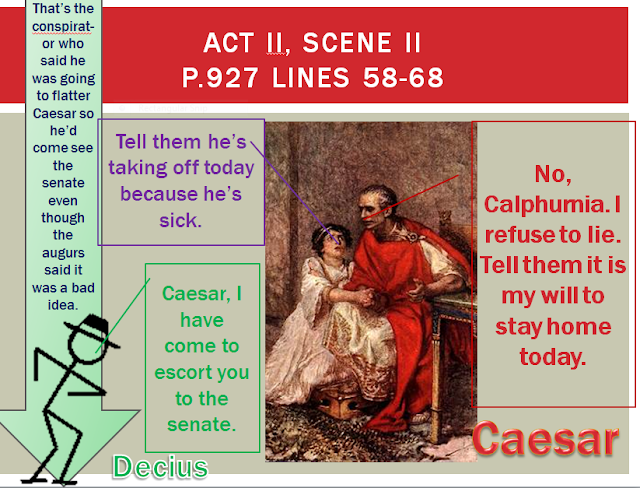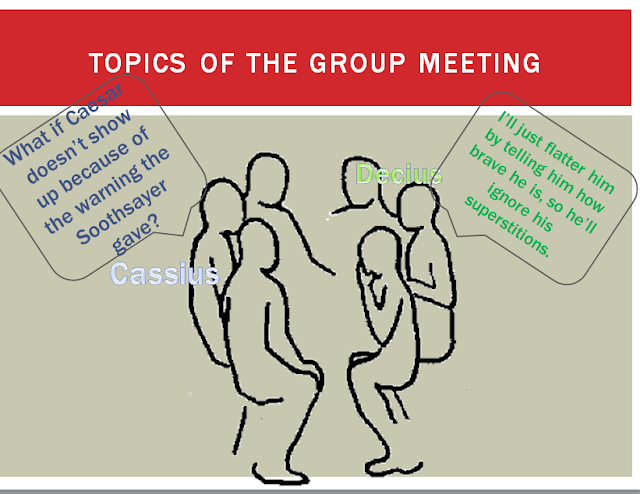¡Act II, scene ii beings in Caesar’s palace. Caesar is kept awake because Calphurnia keeps having nightmares and calls out in her sleep about Caesar’s murder THREE TIMES!
¡Cassius and Brutus enter with Ligarius, Metellus, Casca, Trebonius, and Cinna to escort him to the Senate. Finally, Antony enters.
¡Caesar prepares to depart.
Act II, scene iii
¡Artemidorus – (a man loyal to Caesar) knew about the plot to kill Caesar and planned to warn him. In scene iii, Artemidorus comes on stage reading the letter he wrote to Caesar, warning him to beware of Brutus, Casca and other conspirators. He stands along the path that Caesar will take to the Senate, prepared to hand the letter to Caesar. He hopes that Caesar will read the letter, and it will save his life.
Act II, scene iv
¡Portia sends Brutus’s servant to the Senate to observe events and report back to her how Caesar is doing.
¡A Soothsayer enters, and Portia asks him if Caesar has gone to the Capitol yet. The Soothsayer replies that he knows that Caesar has NOT yet gone; he intends to wait for Caesar along his route, since he wants to say a word to him.
¡He goes to the street to wait, hoping Caesar’s entourage will let him speak to the great man.
¡Texting had not yet been invented, so Portia sends her servant to tell Brutus she is merry. (She is actually very scared and worried.)



















